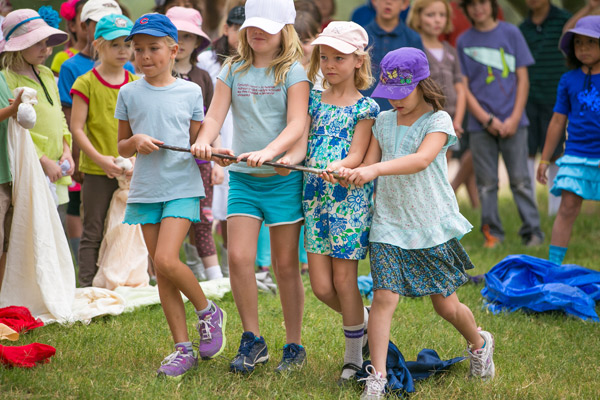
- This event has passed.
What’s the Big Deal About Screen Time, Anyway?
April 27, 2018 @ 8:00 am - April 28, 2018 @ 5:00 pm

To receive the full benefit of a Tucson Waldorf School education, parents are asked to carefully consider the effects of media and screen engagement, particularly for children under age 9. Without media, children learn how to self-initiate play. Eliminating media helps get away from the entertainment paradigm of parenting and schooling, and supports development of emotional self-regulation, an essential capacity for success in school and beyond. As parents, our job is to hold back the tide of popular culture, which is very shallow and full of violence as well as early sexualization. Media, and even the act of using media, primarily shows examples of how to be fulfilled by looking outside yourself. Our hope is for our children to learn how to connect with us, each other, and themselves. This takes time and opportunities.
Opening the dyke “a little” to media and popular culture is nearly impossible. It’s a culture that is very easy to penetrate because it is so shallow. We want our children to have a deep well from which to draw from. This well is created by offering images, stories, and experiences that are worthy of our children’s imitation. Children’s work is play and we must offer them true and rich imaginative images and experiences. This even applies to educational programming. According to Piaget, once a child is “taught” something, we forever take away their opportunity to learn it for themselves. This is why in Waldorf schools we often hear the phrase that we teach children how to learn not what to learn.
An abbreviated look at how screens affect children on a physiological level in several ways:
Eyes: The light disrupts melatonin production leading to poor sleep. 2D screens alter normal eye muscle movement which is what influences visual and vestibular (balance) development, cognition, and mood.
Brain: Our brains are evolutionarily designed to respond to visual input related to brightness, color, contrast, and movement. This is called the orienting response. This response helped us flee predators. Media uses artificially created stimuli to activate this response. This creates chemical, electrical, and mechanical shifts in the body that raise cortisol. Regardless of content, media use puts us in Fight or Flight.
Body: Blood flows away from the gut and reproductive organs toward the limbs and heart during media use. It increases heart rate and blood pressure. It is inducing our flight or fight response. Research shows this happen regardless of content.
Tucson Waldorf School is dedicated to nurturing each child’s capacity for creative imagination, independent thinking, and positive action. The school’s efforts to foster students’ healthy emotional development and meaningful relationships with their environment and other people are undermined by encounters with media that separate children from authentic experience and promote a distorted, developmentally inappropriate, and consumerist view of the world. The impact of media exposure is passed on to other children, reverberating through the community and showing up in other children’s play, attitudes, language, and inner life.
We are all working on our relationship to media and our goal is to build a supportive community where we can all work together to help each other and our children on this journey.
Some excerpts above summarized from book, Reset Your Child’s Brain: A Four Week Plan To End Meltdowns, Raise Grades, and Boost Social Skills by Reversing the Effects of Electronic Screen-Time by Victoria L. Dunckley, MD.
Tucson Waldorf School has copies of Reset Your Child’s Brain, which are currently available for purchase at cost in either office.
